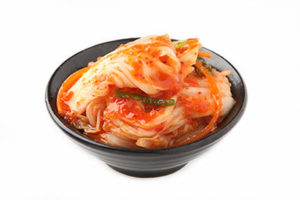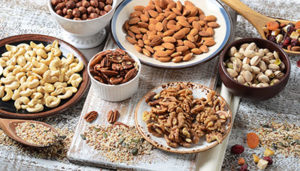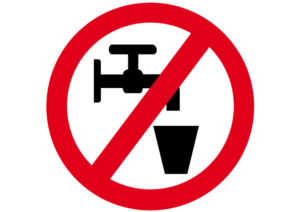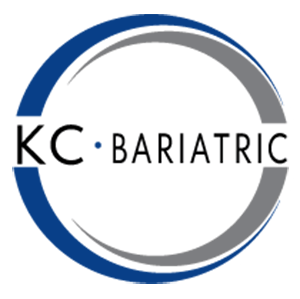Microorganisms are everywhere. From those that live in the ocean to those found in the soil that helps feed the world. Other microorganisms live in a host environment, and our body is no exception to this rule. According to Merriam Webster’s Dictionary, a microbiome is “a community of microorganisms (such as bacteria, fungi and viruses) that inhabit a particular environment and especially the collection of microorganisms living in or on the human body”. There are about the same number of cells that make up the entire human body as the number of microbiomes in us. Microbiomes that reside inside the gastrointestinal tract are referred to as gut microbiomes and are found all throughout the GI tract. They participate in a wide variety of systems and they influence human health in important ways.
Here are some areas of potential influence when gut microbiomes heal and protect your health:
- Act as a mediator. They are the first to be in contact to environmental changes, protecting you from illness;
- Maintain human homeostasis. They can modulate your body’s metabolic status, vitamin production, nutrient absorption, and how you utilize carbohydrates and fat, whether you feel hungry or full;
- Influence inflammatory process. They help maintain the integrity of the gut lining, regulate immunity, and control inflammation preventing a leaky gut;
- Influence your brain health. They directly affect the function of the cells along the vagus nerve. Some of the gut’s nerve cells and microbes release neurotransmitters that speak to the brain in their own language. Many scientists are now calling them the “second brain”. They affect your mood, ability to concentrate, and libido. A dysfunctional microbiome could be the root of headaches, anxiety, and inability to concentrate;
- Act as a physical and chemical mechanism to prevent gastrointestinal infection. They can detoxify chemicals such as environmental toxins in a way that when they are consumed, they can act on the primary source of exposure and protect you. This means they serve as natural antibiotics, antivirals, and antifungals. They can interact with oral medications and potentially reduce side effects.

Probiotics help you lose more weight
You can change the state of your microbiome footprint and the fate of your health, opening the door for better health. A study published in the Journal of Gastrointestinal Surgery showed that patients who take probiotics after the gastric-bypass procedure tend to lose more weight than those who don’t take the supplements. Other researchers have found evidence linking bariatric surgery to long-term positive changes among the gut microbiomes.
Significant changes in the array of gut bacteria can take place in as little as six days after instituting a new dietary protocol. This plan can help you get started:
EAT FOODS RICH IN PROBIOTICS
Probiotics are live bacteria and yeast that support good digestive health. Long before probiotic supplements became available, the health benefits of fermented foods such as sauerkraut and yogurt were well recognized. The type of fermentation that makes most foods rich in beneficial bacteria is called lactic-acid fermentation. In this process, good bacteria convert sugar molecules in food into lactic acid, and, in doing so, the good bacteria multiply. This lactic acid, in turn, protects the fermented food from being invaded by pathogenic-bacteria because it creates an environment with a low pH. This kills off harmful bacteria, which has a higher pH. There’s no better way to consume bifidobacteria and lactobacilli than to get them from food sources as well as food based micronutrients. However, due to stomach restriction after bariatric surgery, it is recommended to include probiotics into your daily nutrient supplementation regimen.
These are some of the best food sources for probiotics:
- Live-Culture Yogurt: Check the label to make sure your yogurt contains live cultures, and avoid products that are heavily sweetened. Coconut yogurt is an excellent alternative for people who are sensitive to dairy;
- Kefir: A fermented-milk product that has a more liquid texture than yogurt;
- Kombucha Tea: A tart, fermented black tea;
- Kimchi: Spicy, fermented vegetables that are Korean in origin. Kimchi is one of the best probiotic foods you can add to your diet;

Kimchi
- Sauerkraut: Real, fermented sauerkraut fuels healthy gut bacteria and contains choline, a chemical needed for proper transmission of nerve impulses from the brain through the nervous system. You can make your own real sauerkraut at home or find it in the refrigerated section of grocery stores;
- Pickles: The most basic and beloved probiotic. As with sauerkraut, choose real, brined pickles that have been refrigerated.
LOWER YOUR CARBS AND CHOOSE HIGH QUALITY FATS

Healthy Fats From Nuts & Seeds
A diet that keeps your blood sugar balanced keeps your gut bacteria balanced. A diet high in rich sources of fiber from whole vegetables and fruits feeds good gut bacteria and produces the right balance of short-chain fatty acids to keep the intestinal lining in check. A diet that’s intrinsically anti-inflammatory is good for the brain also.
Diets high in sugar and low in fiber fuel unwanted bacteria and increase the chances of intestinal permeability, a compromised immune system, and widespread inflammation. It’s a vicious cycle; all of these further disrupt our protective microbial balance. Choose fats from those naturally found in the protein foods, from butter and olive oil used to prepare the dish, and from nuts, seeds, avocado, and coconut.
CONSUME FOODS RICH IN PREBIOTICS
Prebiotics are food-borne fuel for the beneficial bacteria that live in the gut, and they occur naturally in raw garlic, cooked and raw onions, leeks, chicory, artichokes, and jicama. Estimates suggest that for every 100 grams of prebiotic carbohydrates we consume, a full 30 grams of good gut bacteria are produced.
Prebiotics have many additional benefits, including the ability to reduce inflammation in inflammatory-bowel disorders, enhance mineral absorption, and promote a sense of satiety. Animals given prebiotics produce less ghrelin, the hormone that signals the brain that it’s time to eat.
DRINK FILTERED WATER

No Chlorine
Consuming plenty of water is important to intestinal health, but it’s critical that the water doesn’t contain gut-busting chemicals like chlorine. Environmental toxins can disrupt your microbiome footprint.
Use a household water filter. There are a variety of home water-treatment technologies available, from simple filtration pitchers to under-sink units with a separate spigot. Make sure the filter you buy removes chlorine as well as other contaminants, and be sure to maintain and change it regularly. Finally, ditch plastic water bottles and choose reusable bottles made from stainless steel or glass instead.
References:
Experience Life Magazine September 2015. David Perlmutter, MD
ASMBS Obesity
Week Conference 2016 New Orleans, LA
https://www.sciencedaily.com/releases/2009/07/090713114512.htm

